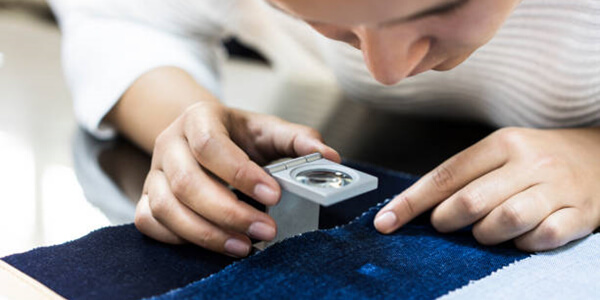
Hauptzertifizierungen für Textilien
Einführung
Textilprodukte sind aus unserem täglichen Leben nicht mehr wegzudenken, und die wachsende Sorge um nachhaltige Produkte hat zur Einführung verschiedener Zertifizierungen geführt. Diese Zertifizierungen sollen sicherstellen, dass Textilprodukte bestimmte Standards und Kriterien erfüllen. Dieser Blogbeitrag gibt einen Überblick über die bekanntesten Textilzertifizierungen, einschließlich ihrer Inhalte, Anforderungen, Zertifizierungsstellen, Anwendung und einen Vergleich ihrer wichtigsten Merkmale.
Globaler Recyclingstandard (GRS)
Die GRS-Zertifizierung stellt sicher, dass Textilprodukte aus recycelten Materialien hergestellt werden und der Produktionsprozess umweltverträglich ist. Die Zertifizierungsanforderungen umfassen Folgendes:
- Die Rückverfolgbarkeit von recycelten Inputmaterialien.
- Die Reduzierung schädlicher Chemikalien.
- Die richtige Behandlung von Abfallstoffen.
The certification body for GRS is Textile Exchange, and the application process involves an evaluation of the company's environmental and social impact. GRS certification applies to various textile products, including apparel, home textiles, and accessories.
Globaler Bio-Textilstandard (GOTS)
GOTS certification ensures that textile products are made from organic fibers and that the production process is environmentally and socially responsible. The certification requirements include the traceability of organic input materials, reduced harmful chemicals, and compliance with fair labor standards. The certification body for GOTS is Control Union Certifications, and the application process involves an evaluation of the company's environmental and social impact. GOTS certification applies to various textile products, including apparel, home textiles, and accessories.
Standard für organische Inhalte (OCS)
OCS certification ensures that textile products contain organic material and that the production process is environmentally responsible. The certification requirements include the traceability of organic input materials and the proper treatment of waste materials. The certification body for OCS is Textile Exchange, and the application process involves an evaluation of the company's environmental and social impact. OCS certification applies to various textile products, including apparel, home textiles, and accessories.
Better Cotton Initiative (BCI)
BCI certification aims to promote sustainable cotton production and improve the livelihoods of cotton farmers. The certification requirements include reducing harmful chemicals, water conservation, and compliance with fair labor standards. The certification body for BCI is Control Union Certifications, and the application process involves an evaluation of the company's environmental and social impact. BCI certification applies to cotton products, including apparel, home textiles, and accessories.
Verantwortungsvoller Daunenstandard (RDS)
RDS certification ensures that down feathers used in textile products are ethically sourced and that the production process is environmentally responsible. The certification requirements include the traceability of down feathers, compliance with animal welfare standards, and reducing harmful chemicals. The certification body for RDS is Textile Exchange, and the application process involves an evaluation of the company's environmental and social impact. RDS certification applies to products containing down feathers, including apparel, home textiles, and bedding.
Bluesign
Die Bluesign-Zertifizierung stellt sicher, dass Textilprodukte umweltverträglich und nachhaltig hergestellt werden. Die Zertifizierungsanforderungen umfassen Folgendes:
- Die Verwendung von umweltfreundlichen Materialien und Chemikalien.
- The reduction of waste and emissions.
- Compliance with fair labor standards.
The certification body for Bluesign is Bluesign Technologies AG, and the application process involves an evaluation of the company's environmental impact. Bluesign certification applies to various textile products, including apparel, home textiles, and accessories.
Oeko-eg
Oeko-tex certification ensures that textiles are free of harmful substances, making them safe for human use. The certification applies to every stage of textile production, including raw materials, fibers, yarns, fabrics, and finished products. The Oeko-tex certification process involves testing over 100 harmful substances, including heavy metals, carcinogens, and allergenic dyes. The certification is valid for one year, and renewal is required annually. The certification applies to all textiles, including clothing, home textiles, and accessories. Independent third-party certification bodies award the certificate.
Vergleich der Zertifizierungen:
| Zertifizierung | Inhalt | Anforderungen | Zertifizierungsstelle | Anwendbare Produkte |
| GRS | Stellt sicher, dass das Produkt aus recycelten Materialien hergestellt wird | Rückverfolgbarkeit, Sozial- und Umweltkriterien | Textilbörse | Alle Arten von Textilien |
| GOTS | Stellt sicher, dass das Produkt aus organischen Fasern hergestellt wird | Rückverfolgbarkeit, Sozial- und Umweltkriterien | Control Union-Zertifizierungen | Alle Arten von Textilien |
| OCS | Stellt sicher, dass das Produkt mindestens 5 % organische Materialien enthält | Rückverfolgbarkeit, Sozial- und Umweltkriterien | Control Union-Zertifizierungen | Alle Arten von Textilien |
| BCI | Stellt sicher, dass Baumwolle nachhaltig produziert wird | Ökologische, soziale und ökonomische Kriterien | Better Cotton-Initiative | Baumwollprodukte |
| RDS | Stellt sicher, dass Daunen und Federn aus ethischen Quellen stammen | Rückverfolgbarkeit, Tierschutzkriterien | Textilbörse | Daunen- und Federprodukte |
| Bluesign | Stellt sicher, dass das Produkt nachhaltig produziert wird | Chemikalienmanagement, Umweltkriterien | Bluesign-Technologien | Alle Arten von Textilien |
| Oeko-eg | Stellt sicher, dass Textilien frei von Schadstoffen sind | Chemikalienmanagement, Sicherheitskriterien | Oeko-tex Verband | Alle Arten von Textilien |
In summary, textile certifications are essential in ensuring sustainable and ethical production practices in the textile industry. Each certificate has its unique requirements and criteria, but they all share the common goal of promoting sustainability and ethical rules. By choosing products that have been certified, consumers can feel confident that they are making a positive impact on the environment and society. HABEN (CHINA) BEGRENZT could produce underwear with the above material at your demand; get a quote now!
